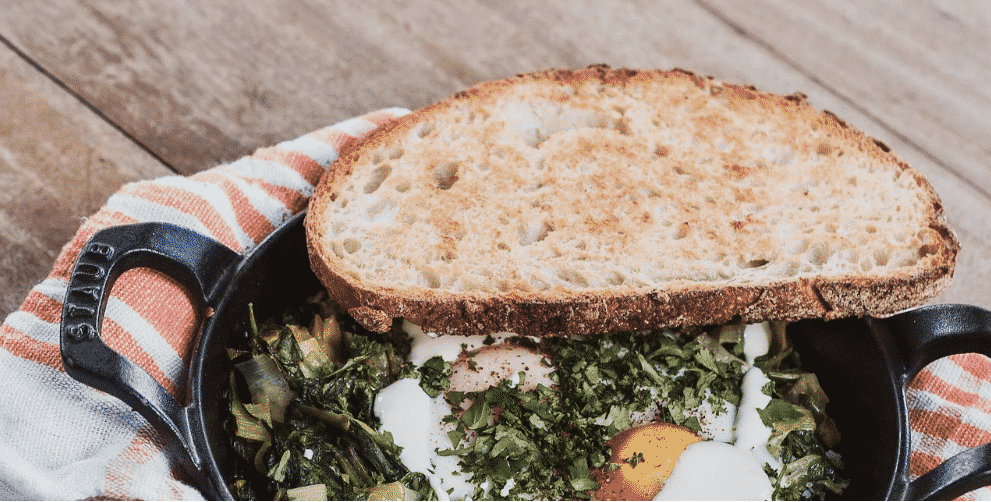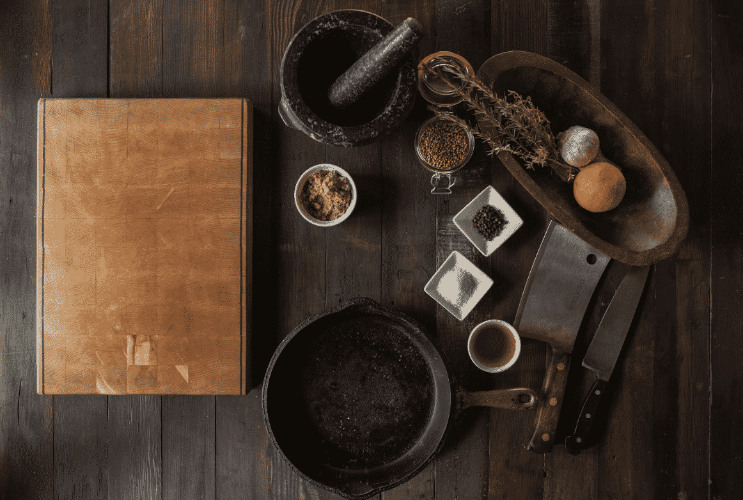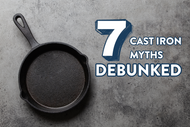What are Common Misconceptions About Cooking with Cast Iron?
2020 Mar 6th
Quick Answer: The biggest misconceptions about cast iron cookware include the belief that soap cannot be used, that acidic foods will damage the pan, and that maintenance is difficult. In reality, modern cast iron is durable, easy to care for, and can handle soap, acidic ingredients, and various cooking methods with proper technique.
Introduction: The Truth About Cast Iron Cookware
Cast iron cookware has been unfairly criticized for decades based on outdated information and kitchen myths. Despite being one of the most versatile and durable cooking tools available, many home cooks avoid cast iron due to misconceptions about its care and use.
The reality? Cast iron pans can broil, fry, bake, and roast better than 90% of other cookware, working seamlessly on stovetops and in ovens. This comprehensive guide debunks seven persistent myths about cast iron cooking, backed by research and expert knowledge.
Boasting our own top-notch collection of cast iron fry pans & skillets, we know a thing or two about what goes down in the kitchen.
Myth #1: You Should Never Wash Cast Iron with Soap
The Misconception
Many believe that dish soap will strip away the seasoning (the natural non-stick coating created by polymerized oil), ruining years of careful maintenance. The fear is that soap's grease-cutting properties will create scratches and damage the oil-based seasoning layer.
The Truth
Cast iron seasoning is remarkably resilient. Once properly seasoned through multiple applications of heat and oil, the polymerized coating bonds to the metal surface. Modern dish soaps are not harsh enough to remove properly bonded seasoning.
Best practice: Wash your cast iron with mild soap and water, then dry it immediately either by wiping thoroughly or placing it on a warm burner for a few minutes. This prevents rust while preserving your seasoning.
Myth #2: Never Cook Acidic Foods in Cast Iron
The Misconception
Common wisdom suggests that acidic ingredients like tomatoes, wine, lemon juice, and vinegar will:
- Create a metallic, unpleasant taste
- React chemically with the iron
- Damage or remove the seasoning
- Cause iron poisoning
The Truth
Brief contact with acidic foods won't harm you or your pan. According to health research, iron poisoning requires consuming approximately 45mg of iron over 2-3 consecutive days, far more than you'd ingest from cooking acidic foods in cast iron.
What you can do:
- Deglaze with wine safely
- Squeeze lemon over chicken without concern
- Use enamel-coated cast iron for extended acidic cooking (like simmering tomato sauce for hours)
- Avoid prolonged simmering of highly acidic foods in uncoated cast iron
The key: Short cooking times with acidic ingredients are perfectly fine, especially in well-seasoned pans.
Related: What Makes a Well-Equipped Kitchen for an Experienced Home Cook?
Myth #3: Cast Iron Is Difficult to Maintain
The Misconception
People believe cast iron requires constant attention: it's heavy, awkward, prone to warping, cracks easily, and the seasoning is fragile. One mistake supposedly ruins the pan forever, and improper cleaning risks food poisoning.
The Truth
Cast iron is the workhorse of cookware, built to last generations with minimal effort. Modern manufacturing has addressed many historical concerns:
Maintenance realities:
- Seasoning is a tough, naturally occurring coating that lasts with minimal care
- Modern cast iron is lighter than vintage pieces due to improved manufacturing
- Most brands come pre-seasoned and ready to use
- Warping and cracking are extremely rare with normal use
- Simple storage solution: place a paper towel in one pan and stack others inside
Basic care routine:
- Clean with soap and water or just water
- Dry thoroughly (crucial step)
- Apply a thin layer of oil occasionally
- Cook with it regularly—use builds better seasoning
Myth #4: Rusted Cast Iron Is Ruined Forever

The Misconception
Once rust appears, the pan is beyond salvation. Cooking on rusted cast iron will make you sick, and the iron oxide has already destroyed the pan from the inside out.
The Truth
Rust is easily reversible and poses minimal health risk. Research from the University of Illinois confirms that small amounts of rust in cast iron cookware aren't likely to harm you.
Rust removal methods:
For light rust:
- Scrub with fine steel wool or a scrub pad
- Rinse and dry thoroughly
- Re-season immediately
For heavy rust:
- Spray with oven cleaner
- Place in a sealed trash bag for 2-3 days
- The rust loosens and scrapes off easily
- Clean, dry, and re-season
Your "ruined" cast iron can be completely restored to cooking condition in less than an afternoon.
Related: Is Nonstick Cookware Safe? Here’s What You Need to Know
Myth #5: Cast Iron Heats Unevenly
The Misconception
Cast iron only gets hot directly under the burner, leaving the rest of the pan cold. This supposedly causes steaks to stick, cornbread to burn in the center, and makes cooking eggs or omelets impossible.
The Truth
Cast iron does heat slowly but retains heat exceptionally well. The solution is proper preheating technique, not avoiding cast iron altogether.
How to achieve even heating:
Stovetop method:
- Heat on medium for at least 10 minutes
- Rotate the pan a quarter turn every 2-3 minutes
- Test the temperature before adding food
Oven method (foolproof):
- Place the cast iron in the oven at the desired temperature
- Heat for 30 minutes
- Use a silicone handle grip when removing
- Transfer to the stovetop for perfectly even heat
Pro tip: Once properly heated, cast iron maintains a consistent temperature better than most other cookware, making it ideal for searing and high-heat cooking.
Myth #6: Metal Utensils Will Destroy Cast Iron Seasoning
The Misconception
Using metal spatulas, spoons, or tongs will scratch the seasoning, leading to sticking, rust, and the need for constant re-seasoning. Some also claim that metal-on-metal contact increases iron leaching into food.
The Truth
Seasoning is baked into the iron through polymerization—it's incredibly durable. Metal utensils used for normal cooking (flipping, stirring, lifting) won't damage properly seasoned cast iron.
Guidelines:
- ✅ Metal spatulas for flipping and lifting
- ✅ Metal spoons for stirring
- ✅ Tongs for turning food
- ❌ Stabbing with knives or forks (damages any cookware)
- ❌ Using cast iron as a cutting board
The same rules apply to all quality cookware, not just cast iron. Normal cooking utensils won't compromise your pan.
Myth #7: Cast Iron Only Works on Gas Stoves

The Misconception
Cast iron was designed for open flames and only performs well on gas stoves. Electric, glass-top, and induction stovetops will scratch, won't heat the pan properly, or will collapse under the weight.
The Truth
Cast iron works on every heat source, making it one of the most versatile cookware options available.
Compatible cooking surfaces:
- Gas stoves (traditional favorite)
- Electric coil stoves
- Glass-top/ceramic ranges
- Induction cooktops (iron is naturally magnetic)
- Campfires and grills
- Conventional and convection ovens
Important tip: Regardless of heat source, always preheat cast iron slowly (at least 10 minutes on medium) for even heat distribution.
For glass-top stoves: Lift and place the pan gently rather than sliding to prevent scratches. The weight is not an issue for modern stovetops designed to handle heavy cookware.
Why These Misconceptions Persist
Cast iron myths have survived for generations due to:
- Outdated information passed down through families
- Early manufacturing limitations that modern technology has solved
- Comparing vintage care requirements to modern pre-seasoned cookware
- Fear-based marketing from competing cookware brands
- Lack of proper instruction when purchasing
Modern Cast Iron Advantages
Today's cast-iron cookware offers significant improvements:
Pre-seasoning: Brands like Lodge come with multiple layers of seasoning (often organic flaxseed oil) applied at the factory. You can start cooking immediately.
Lighter weight: Advanced manufacturing has reduced weight while maintaining heat retention and durability.
Specialized designs: Ergonomic handles, helper handles, and pouring spouts make modern cast iron more user-friendly.
Enamel options: Enamel-coated cast iron (like Le Creuset) requires no seasoning and handles acidic foods perfectly.
Maintenance products: Seasoning sprays, specialized scrubbers, and handle grips make care effortless.
Cast Iron Care: Simple Best Practices
Daily cleaning:
- Clean while still warm (easier food release)
- Use hot water and a brush or non-abrasive scrubber
- Soap is fine for stubborn residue
- Dry completely: this is non-negotiable
- Apply a thin layer of oil if the pan looks dry
Periodic maintenance:
- Re-season once or twice a year, or when food starts sticking
- Store with a paper towel inside to absorb moisture
- Keep in a dry place
Cooking tips:
- Preheat properly for best results
- Use adequate fat when cooking
- Avoid extreme temperature shocks
- Cook regularly: frequent use improves seasoning
Why Every Kitchen Needs Cast Iron
Despite the myths, cast iron remains the most versatile cookware investment:
Benefits:
- Durability: Lasts for generations, often becoming family heirlooms
- Versatility: Stovetop to oven, indoor to outdoor cooking
- Heat retention: Maintains temperature better than any alternative
- Natural non-stick: Properly seasoned cast iron rivals modern coatings
- Affordability: Less expensive than premium stainless or copper
- Health benefits: Small amounts of dietary iron leach into food
- Sustainability: No chemical coatings, completely recyclable
Cultural heritage: Cast iron has served kitchens worldwide for over 300 years: Chinese woks, Dutch ovens, French braziers, and American skillets all prove its universal value.
Conclusion: Cast Iron Deserves Its Place in Modern Kitchens
The misconceptions surrounding cast iron cookware stem from outdated practices and misinformation, not reality. Modern cast iron is:
- Easy to clean (yes, with soap)
- Simple to maintain
- Compatible with all cooking surfaces
- Durable enough for metal utensils
- Capable of cooking acidic foods
- Recoverable from rust: see our guide on How to Remove Rust from Cast Iron Skillet
- Even heating with proper technique
Bottom line: Cast iron cookware is one of the best investments for any kitchen. It's affordable, virtually indestructible, improves with use, and handles more cooking techniques than almost any other pan type.
Whether you're a beginner or experienced cook, adding quality cast iron to your kitchen arsenal will expand your cooking capabilities for decades to come.
Frequently Asked Questions
Q: How often should I season my cast iron? A: Most modern pre-seasoned cast iron needs re-seasoning only once or twice per year, or when food begins sticking. Regular cooking with oil actually maintains seasoning.
Q: Can I put cast iron in the dishwasher? A: No. The dishwasher's harsh detergents and prolonged moisture exposure will strip seasoning and cause rust. Hand washing takes just minutes.
Q: Is cast iron safe for all foods? A: Yes, though highly acidic foods cooked for extended periods may pick up a slight metallic taste in unseasoned or lightly seasoned pans. Well-seasoned cast iron or enameled versions eliminate this concern.
Q: Why does my cast iron feel sticky after seasoning? A: You likely used too much oil. Seasoning should be applied in very thin layers and baked at high heat. Remove excess oil by wiping thoroughly before heating.
Q: Can cast iron go from freezer to stove? A: No. Extreme temperature changes can crack cast iron. Always allow it to come to room temperature gradually.
Ready to start cooking with cast iron? Choose pre-seasoned options from trusted brands like Lodge or Le Creuset (for enameled cast iron) and enjoy generations of reliable cooking performance.


